The relationship between a client and their family law attorney is a very different one when compared to other attorney-client relationships. In comparison to other areas of law such as civil law, real estate law, criminal law, etc., family law cases involve much more heightened emotions and the sharing of inherent vulnerabilities. Divorce, child timesharing issues, and money issues are loaded with emotional difficulties that make the family law attorney-client relationship more intricate. Because of these additional considerations, the specific dynamics between a client and their family law attorney is crucial to the overall success and satisfaction regarding a family law case. Sometimes, however, circumstances arise where the best thing for both the client and the attorney is to listen to Fleetwood Mac’s sage advice and “go [their] own way.”
Most, if not all, family law cases are teeming with emotionally charged situations. From a client’s perspective, their case is a huge transition in their lives or their children’s lives. It is about their life. As the case unfolds and progresses, clients may recognize that their needs, expectations, or personal circumstances have changed. Or it may be that the client now perceives a big difference between the communication styles of their attorney and themselves or that they no longer agree with the legal strategy being pursued. Many clients may feel that their attorney does not fully appreciate their specific situation as being unique or is not delivering the results they want. When there is a mismatch in communication styles, legal approaches, or other reasons causing extreme frustration, it may be time for the client to reassess their attorney-client relationship, and go their own way, seeking new representation.
From the family law attorney’s perspective, there are many valid reasons to consider parting ways with a client. Just like from a client’s perspective, there may be a large dichotomy in the communication styles or the overall personalities of the attorney and client. One very common challenge arises when a client’s expectations are hugely unrealistic. These unrealistic expectations can revolve around many things including the speed of the case, the results that can be obtained, the costs of legal fees, or the strategies that the attorney should take. Frequently, the client’s unrealistic expectations concern the amount of time and focus they believe their attorney should spend specifically and only on their case. There are also instances where a client will insist upon their attorney arguing a position or taking an approach that the attorney knows will either not be persuasive, will affect the client’s case negatively, will sabotage the client’s case, or is even unethical. If a client constantly questions the attorney’s judgment, fails to provide information when repeatedly requested, fails to follow legal advice, if there is a breakdown in trust, becomes increasingly uncooperative, along with the other circumstances described previously, it may be in the attorney’s best interests to suggest parting ways.
Family law attorneys must maintain a professional attorney-client relationship and carefully consider that relationship to make sure that it stays productive and meets ethical and professional standards. This decision to part ways should be handled with open communication and respect. By openly discussing their concerns and expectations, both the client and attorney can appreciate the reasons for ending the attorney-client relationship, and what they should both look for in their future representations.
Like all break-ups, ending the attorney-client relationship might be difficult at first, but it really can be the best thing. The decision to part ways, whether the idea of the client or the attorney, should not be taken personally. Going your own way can create a chance for both the attorney and the client to find more fitting legal representations that can result in better outcomes. If you would like to discuss a family law matter, please schedule a consultation today.





